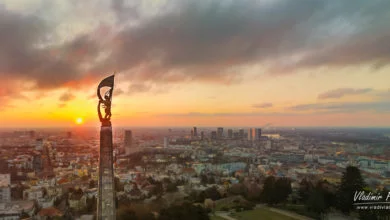We arrived in the city of Peshawar, a place in Pakistan near Afghanistan’s border. The sixth largest city, bustling with over two million souls, but recent bombings, mere days apart, left us with uneasy roles.
Eighty kilometers away, the day before we came, a bomb exploded, leaving fear and chaos in its aim.
And just a bit further, another blast had torn, leaving us wary, wondering how to stay unscorned.
With logic and empathy, we weighed each factor’s weight, seeking ways to ensure our safety, to navigate.
Tomo calculates, and I do too, each in our own way, letting thoughts simmer in our minds, deciding how to stay.
Then, heads together, we discuss what lies ahead, charting our path forward, mindful and not misled.
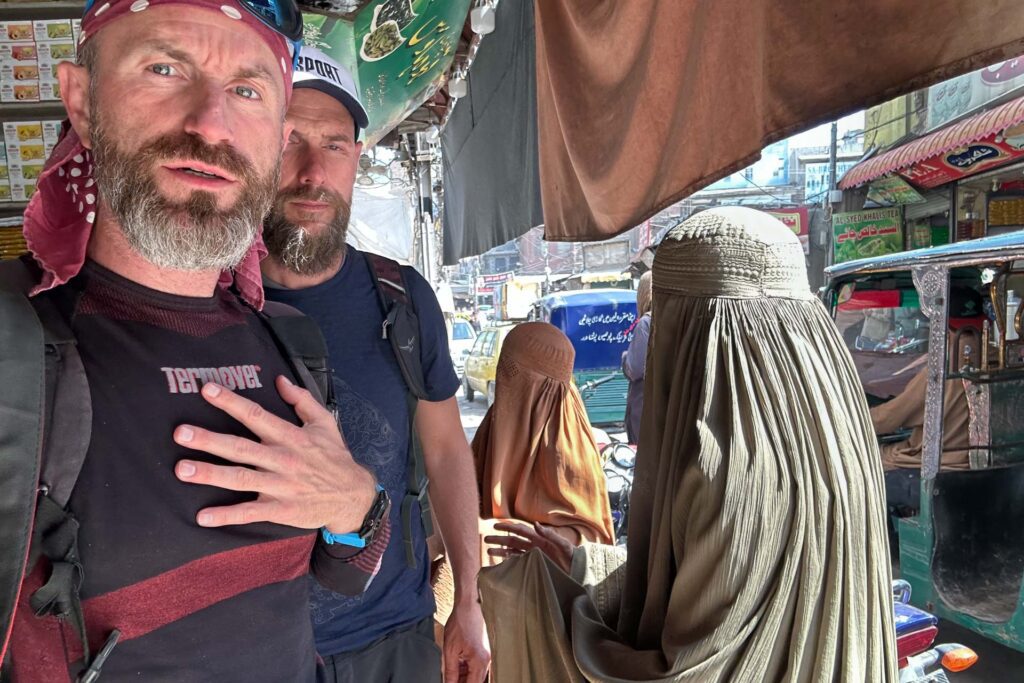


Table of Contents
Atmosphere
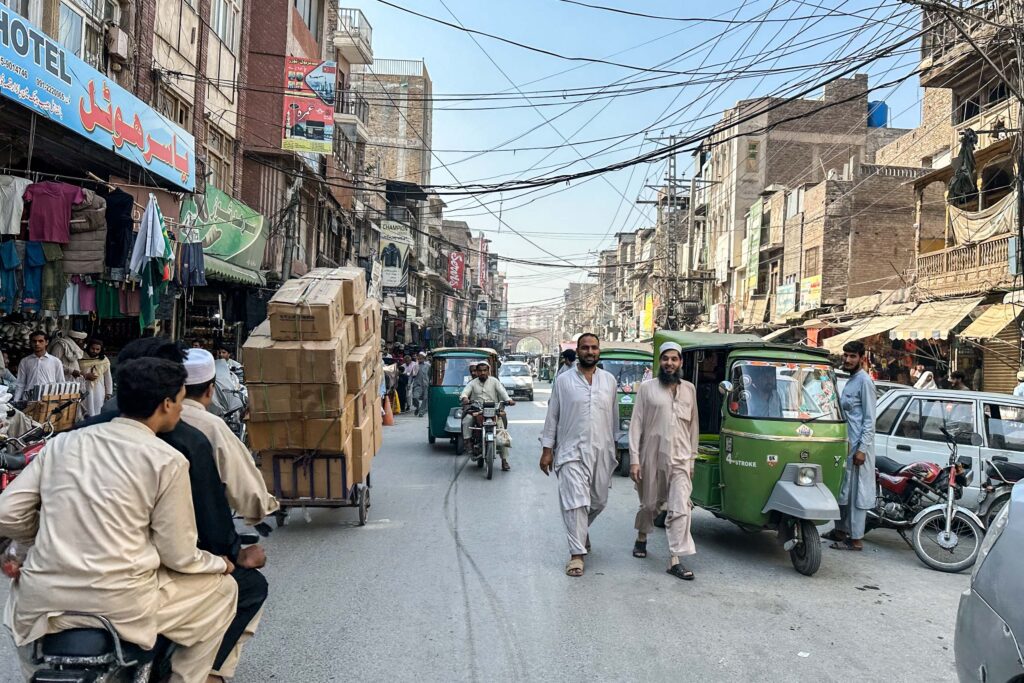


We arrived in Peshawar to arrange visas for Afghanistan. Time is short, though we have three days in the city, we’re mostly in a rush. We meet a man named Prince. Prince’s mind races at full speed; when he speaks, it’s even faster. Combined with his strong local accent, I guess that his English is incomprehensible to 99% of travelers. But Prince knows his way around, and we tune into his frequency.
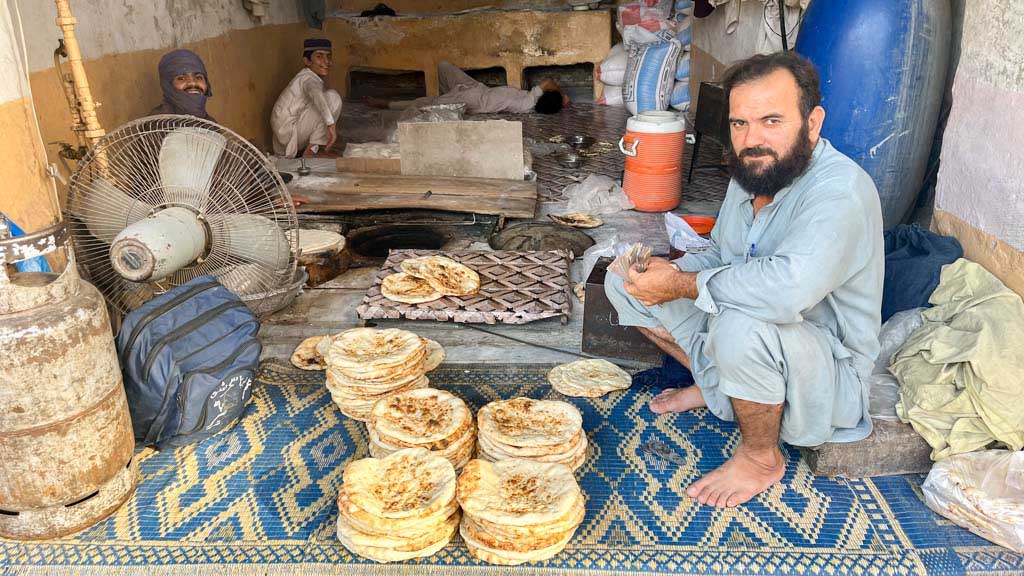


“We head into the city, and the atmosphere is electrifying. There’s a bustling crowd here, akin to a colony of ants.
The strong influence of Afghans, Pashtuns and Muslim culture is palpable. While I’m not an expert on the subject, I can’t precisely determine which influence is more prevalent, but it’s a mixture of all, as I mentioned.”
Cultural change
In contrast to our mountain retreat in the Western Himalayas, here, we’re swept into a whirlwind of culture and bustling pathways. Everything moves swiftly, a symphony of bustling crowds, each soul engaged in something, buying, selling , purpose, or they are heading somewhere.
As a seasoned wanderer, I’m enchanted by this lively scene, a tapestry of cultures, an intense and vibrant dream.
Amidst the market’s treasures, we haggle and explore, seeking clothes, jewelry, and some medicine.
We’re extremely careful with our documents, phones, money, cards, the usual precautions. A crowd of a million offers countless opportunities for lurking dangers. My camera and drone attract attention everywhere. Besides visas, we also need to buy clothing for Afghanistan (Pashtun attire, to blend in with the crowd).
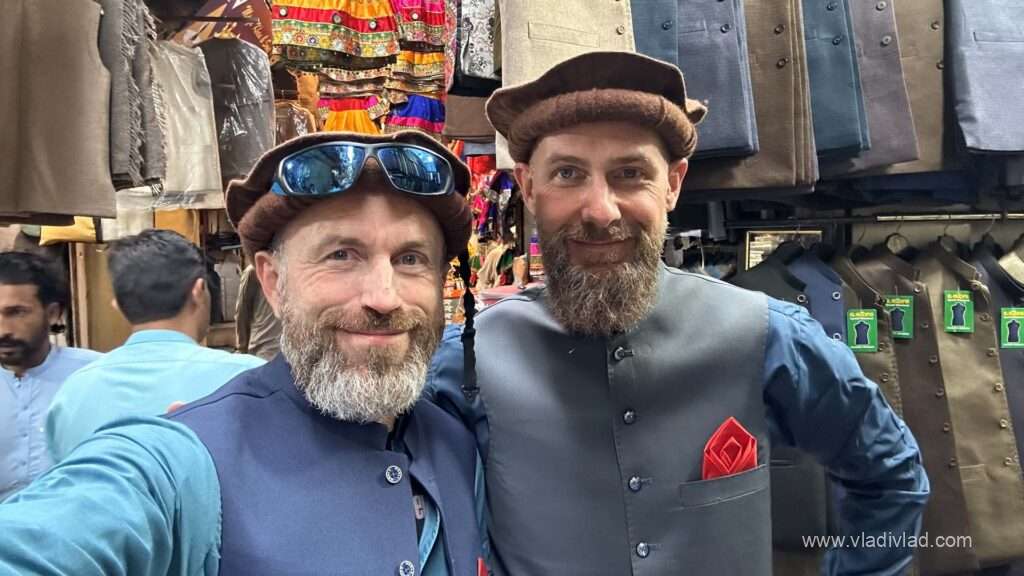


Indeed, merging with the crowd here is not feasible, but one can assimilate with the atmosphere of the environment and appear knowledgeable about the surroundings and interactions. Given our extensive travel history, it doesn’t pose as an impossible challenge; But it requires utmost vigilance and a deep awareness of the energy and vibe of the city, the place, the people, and the culture. Simultaneously, we attentively listen to what each person says, whether it’s Prince, or Israr, our local fixer. We mustn’t underestimate the situation; every misstep could have consequences.
The Strong Influence of Afghanistan
On the streets, we encounter women not only in hijabs or niqabs but also completely veiled in burqas. For them, it’s everyday life, but for me, it’s a fascinating experience to witness it firsthand. This experience is a step in personal growth, just observing and taking it all in. It appears quite strict, yet the people are kind.”
The oldest hostel – Carvan Sarai
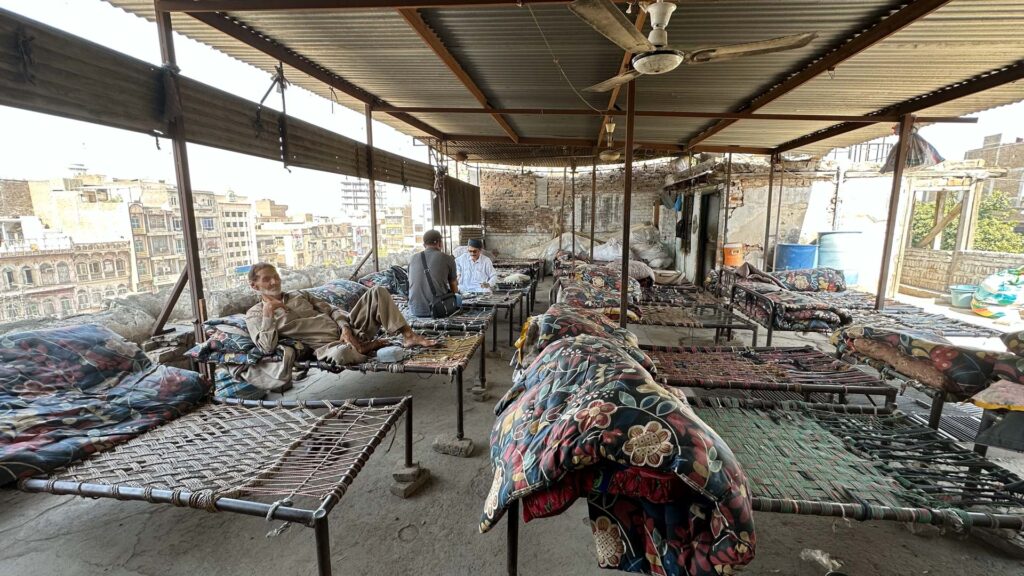


Amidst the hustle and bustle of this disorganized or organized chaos, we ventured into the oldest hostel in the city. A night’s stay costs just 50 cents, and if you truly have no money, they’ll let you spend the night for as little as 30 cents. It’s a total cultural experience. You wouldn’t want to sleep here.
We meet locals who are traveling… somewhere, I don’t even know where. At first, I thought the hostel was no longer operational, but it was. For an average person from developed world countries, spending the night here might not be appealing, but on the other hand, there’s a whole different world where people staying in such a hostel is nothing out of the ordinary. We shake hands with the guys, enjoy some excellent tea, have a chat, and move on.
In the past, people traveling on camels, especially via the Khyber Pass, used to spend the night here, back in the days of the Mughal Empire. It was part of the Silk Road, a crucial trade route connecting Central Asia with the Indian subcontinent. We probably don’t need to elaborate on the military significance of the pass.
Documentary Gallery
![]() Check out and explore the photographic documentary gallery:
Check out and explore the photographic documentary gallery:
Street life of Peshawar photographs in a separate section dedicated to photography and documentary.
Visa to Afghanistan
We’re heading to the Afghan embassy, just a few streets away. Someone tells us not to take any more photos. I’m thinking about how awesome it would be to fly the drone here. But it’s not possible, so be it.
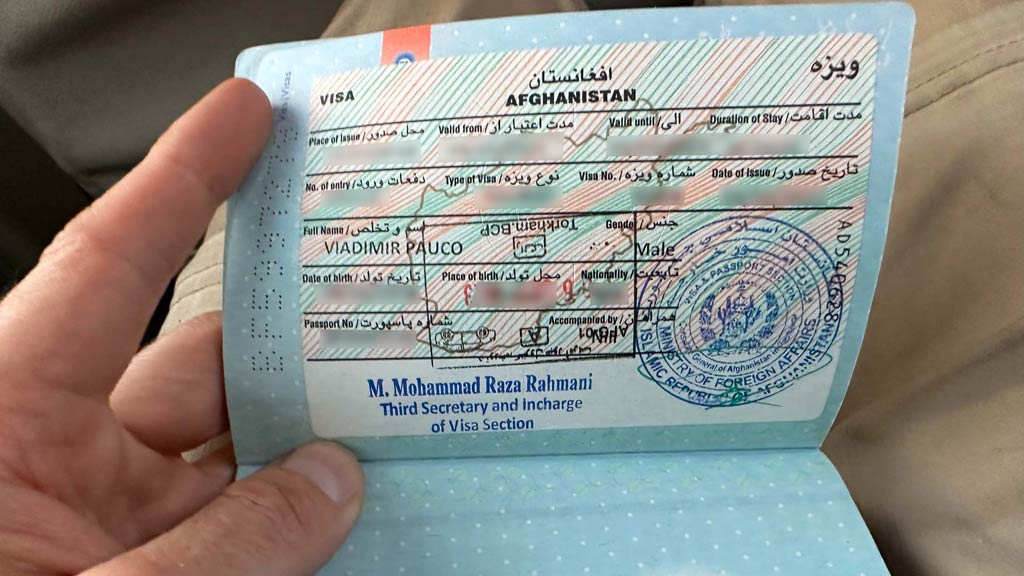


There’s a separate entrance for men and women at the embassy. We have to surrender all our mobile phones, etc., at the entrance. Nothing surprising, but we’re really curious about how we’ll get them back. There’s that big doubt, considering how our phones are essential, they are our computers traveling with us with everything on them. We go through the interview and have some tea. The difference in the status of men and women is immediately apparent. During the conversation, one female traveler in a burqa is strongly ignored, no tea for her, and she’s excluded from the discussion. We get the visas, leave the embassy, and say honest respectful thanks. Then we get our phones and move on.We’re going to cross the border from Peshawar to Afghanistan. After many years, the border is open, and it’s possible to do it; we’ll see. Martin from Travelistan said it’s brutal. We’ll see and catch up later.

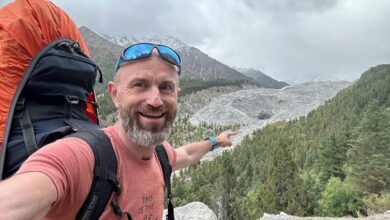
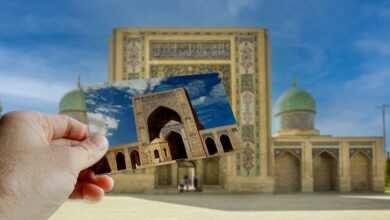
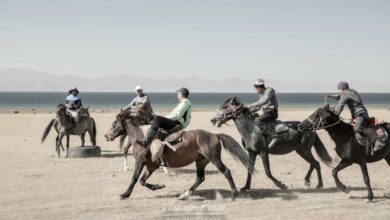
![Planet Slnečnice, Bratislava [Planéta Slnečnice, Bratislava, Slovensko]](http://www.vladivlad.com/wp-content/uploads/2022/08/02_Slnecnice_sum-night_web-1920-390x220.jpg)
